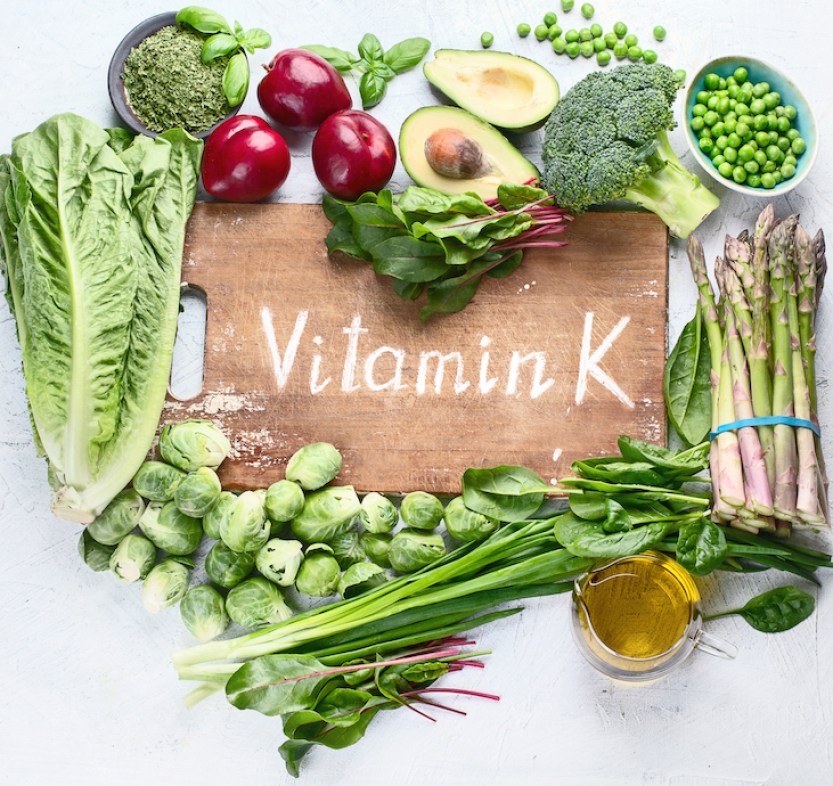Most of you know Vitamin D, Vitamin C, Vitamin B etc, however Vitamin K is just as important, but not really getting the attention it needs.
The function of the different essential vitamins and minerals are super important to be aware of. Why do you need them and most important, how do you cover your basic needs through diet and lifestyle. Each vitamin and mineral has an important function in the body and most of them need each other to function properly.
Fx let's look at Calcium - an essential mineral known to support bones and teeth - and that is correct. However Calcium very much depends on Magnesium, Vitamin K and Vitamin D3 to be absorbed in the body correctly. That is why we never recommend taking Calcium in a "single form" but always together with Magnesium and Vitamin D for optimal and correct effect.
In this newsletter we focus on Vitamin K - because it deserves the extra attention:)
WHAT IS VITAMIN K?
Vitamin K is a fat-soluble nutrient that naturally exists in two forms, K1 and K2. Vitamin K1 is known as phylloquinone, while vitamin K2 is referred to as menaquinone.
Even though vitamin K is fat-soluble, it turns out that what we consume and synthesize is quickly utilized, metabolized, and excreted by our body. Add in the fact that very little vitamin K is stored, and it becomes clear why consuming the right foods or supplements is important to achieve your daily vitamin K needs.
HOW DO I GET VITAMIN K?
As there is a difference in the 2 types of Vitamin K (K1 & K2), you also get them from different sources.
- Vitamin K1 you typically get from vegetarian sources like dark leafy greens such as kale and spinach.
- Vitamin K2 you typically get from animal sources like egg yolk, dairy products and liver.
WHAT DOES VITAMIN K DO?
You can say that Vitamin K helps to direct calcium to the correct and beneficial places in your body (e.g. bones and blood) - and also keeping it away from the wrong places where it can cause trouble - particularly soft and narrow tissue like blood vessels. You don't want calcium building up in your blood vessels!
Vitamin K has two authorized health claims made by EFSA (European Food Safety Authorities);
- Vitamin K contributes to well-functioning and healthy bones
- Vitamin K contributes to normal blood clotting
This two sentences tells us that your body needs Vitamin K to maintain healthy bones and to maintain a healthy blood clotting function. Two very critical functions if you want a long and healthy life.
HOW MUCH VITAMIN K SHOULD I TAKE?
Actually there is no upper tolerable limits for Vitamin K intake - even though it's a fat-soluble vitamin. This means that EFSA has found no reason to put a limit on the intake as there are no risk of "overdosing".
Your daily needs for vitamin K are 90 to 120 mcg depending on your gender. Make sure to get enough of those dark leafy greens or healthy animal sources - they will cover your daily basic needs - or support your diet with extra K2 through a good supplement.
VITAMIN D3 w. K2
Our Vitamin D3 w. K2 is an optimal blend of the two essential vitamins made to support bone health and immune function.
This product is ideal for elderly people or people who take an extra calcium supplement. It will optimize the use of calcium in your body, which is necessary for good bone health. We always recommend this combination for people above 60-70 years to take all year around.
However you don't need to be above 60 years to take this supplement, it can be taken by anyone above 10 years old. It's a great daily supplement for everyday use to cover Vitamin D and Vitamin K needs.
The tablets are chewable with a discrete taste of cherry. In each bottle you get 90 tablets for 90 days usage.

